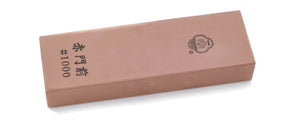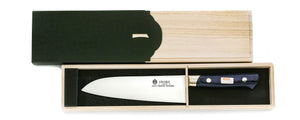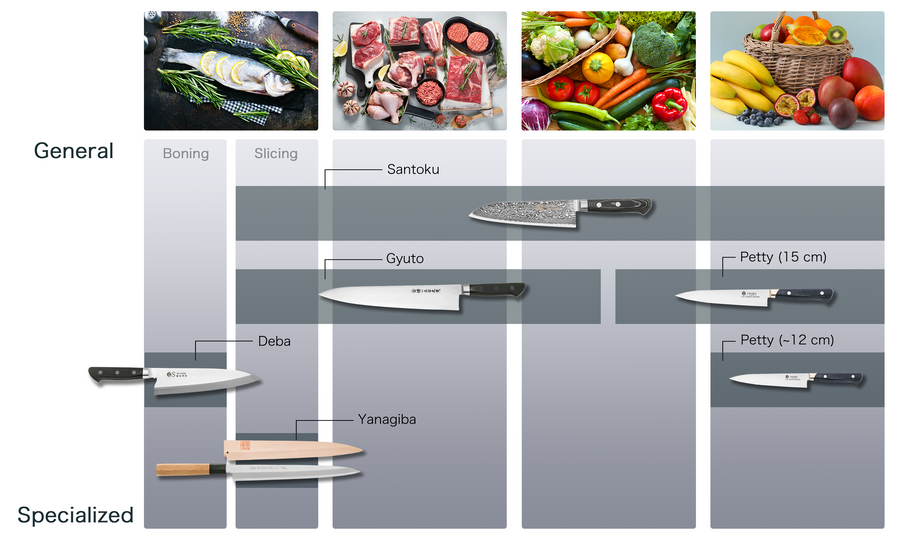
Material: Silver Steel #3 Stainless Steel
Not only high hardness and sharpness like Carbon Steel, but also rust resistant make it recommended.| Product number | Actual Blade Length (mm) | Full Length (mm) | Total Weight (g) |
|---|---|---|---|
| 1kb5k-sakura | 170 | 320 | 130 |
| Blade | Material Name | Handle |
|---|---|---|

Double Edged |
Ginsan Steel(Silver #3) | Yew octagonal handle |

Wa-Santoku
A Wa-Santoku is typically used in households around Japan. Unlike the standard Santoku, the Wa-Santoku has a traditional Japanese handle which shifts the balance point slightly,allowing more nimble cutting.
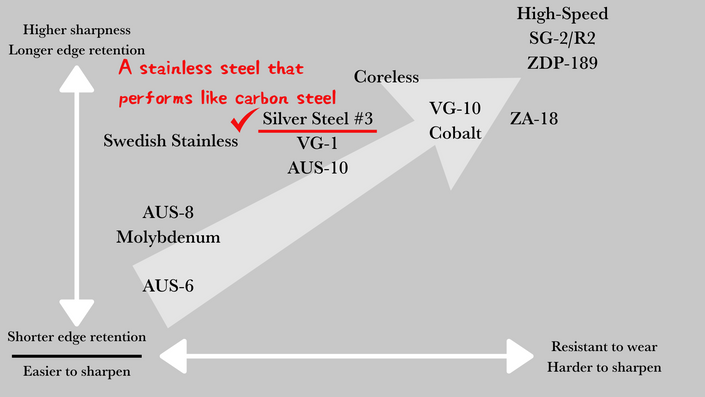
Silver Steel #3
Often used for traditional Japanese stainless steel knives. Known for ease of sharpening and rust resistance, all while performing like a carbon steel knife.
Stainless Steel
Silver Steel #3 is a traditional stainless steel, used for many years in the Japanese kitchen knife world and trusted by chefs who need premium sharpness. Hitachi Metals, a manufacturer of carbon steels like White Steel and Blue Steel, developed Silver Steel #3 as a rust-resistant stainless steel, with increased carbon levels to allow it to perform more like a traditional carbon steel knife. It has brilliant edge retention, and is suitable for people who need to use a knife for longer sessions and still want amazing cutting power, but are concerned about rust. This is popular with professionals, home users and newcomers alike.
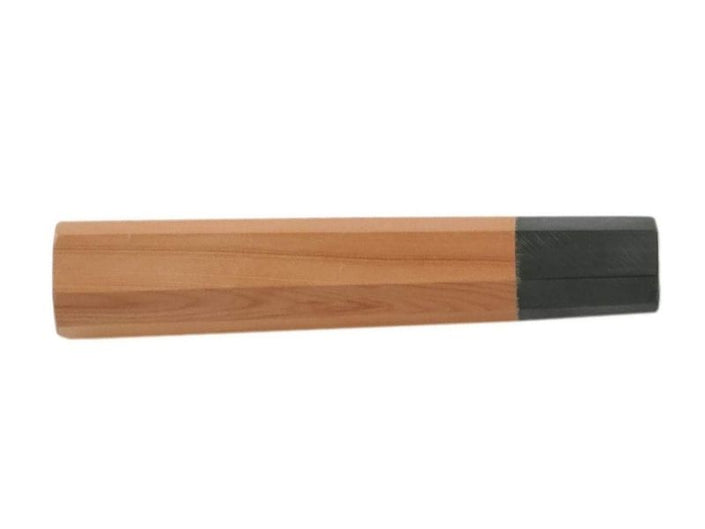
Yew octagonal handle
Japanese yew wood has been used for thousands of years as a material for shaku (a ritual baton used by the emperor and high-class officials in ancient Japan, and Shinto priests now) due to its beautiful grain patterns and high durability. Also known for its high natural oil content and long lifespan, it's a popular material for high-end furniture and wood carvings. As the years pass, the wood's color darkens, giving it an attractive appearance unique to each piece.
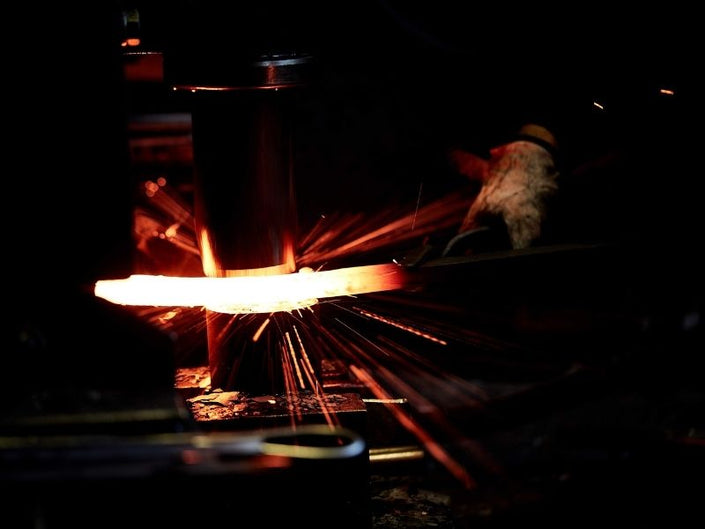
Forge Welded
Forge Welded knives undergo a forging process where steel is heated to high temperatures and then shaped with a hammer. This carefully done process changes the internal structure of the steel, producing a blade with superior hardness levels. Highly skilled craftspeople forge, quench, and create the knife's cutting edge by hand, resulting in a sharp blade with long edge retention.

Optional Engraving
Optional Engraving Service
Sakai Ichimonji provides complimentary engraving using either Japanese Kanji or English Alphabet. Please specify your preference. For details, please visit here
A knife store that has supported the history of knives and food culture in Japan.
It has been 600 years since the birth of swordmaking in the Sakai region of Japan. Sakai Ichimonji Mitsuhide's and it's craftsmen continue to build on that legacy by producing the finest blades in Japan.
This is where the culture of completing a dish of sashimi by "just cutting" and the culture of expressing sharpness as "taste" was born.
For 70 years, we have been connecting the spirit of Sakai's craftsmen with the passion of chefs in Osaka's kitchen equipment shopping district, known as the kitchen of Japan.
We are very happy that our knives can be used by people all over the world.
Precautions
After use, wash off any dirt and wipe thoroughly with a dry cloth to remove any moisture. This product is not for use with frozen foods.This product is handmade, so each piece will be different. Please use the weight and length listed as a guide. Each material is natural and may vary in color. It is not the same as the picture.We take great care with our inventory, but in the unlikely event that we are out of stock, we will contact you by email to let you know.



























